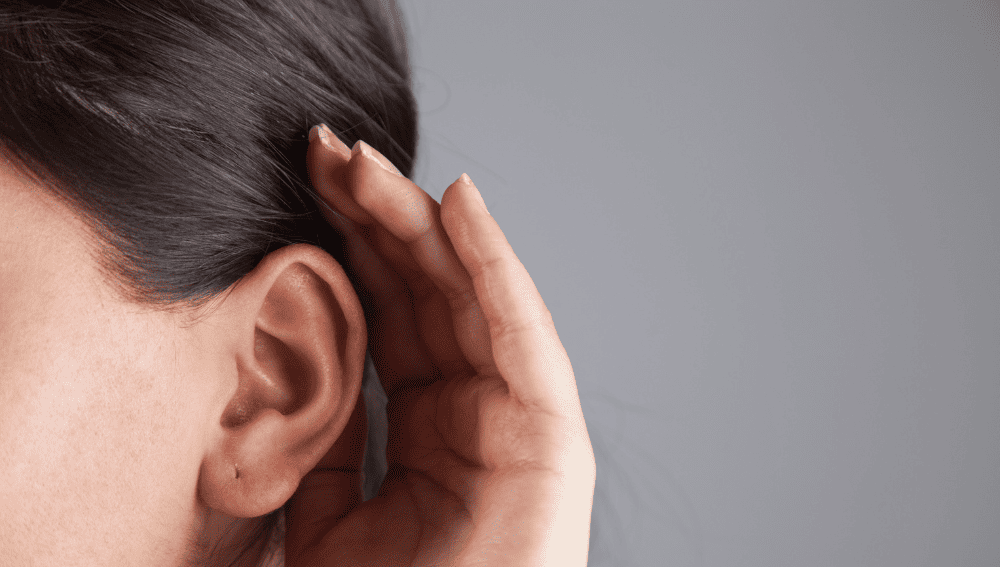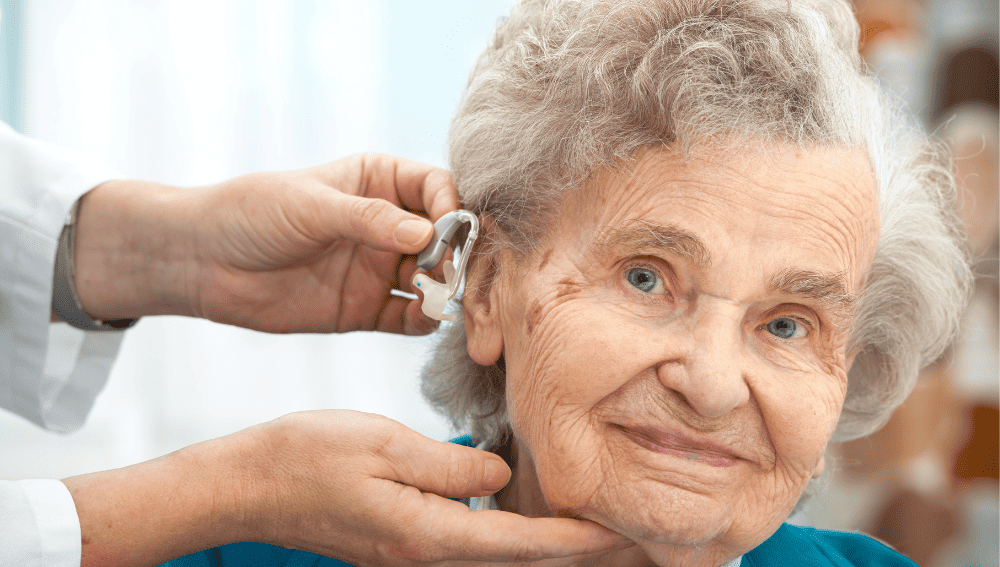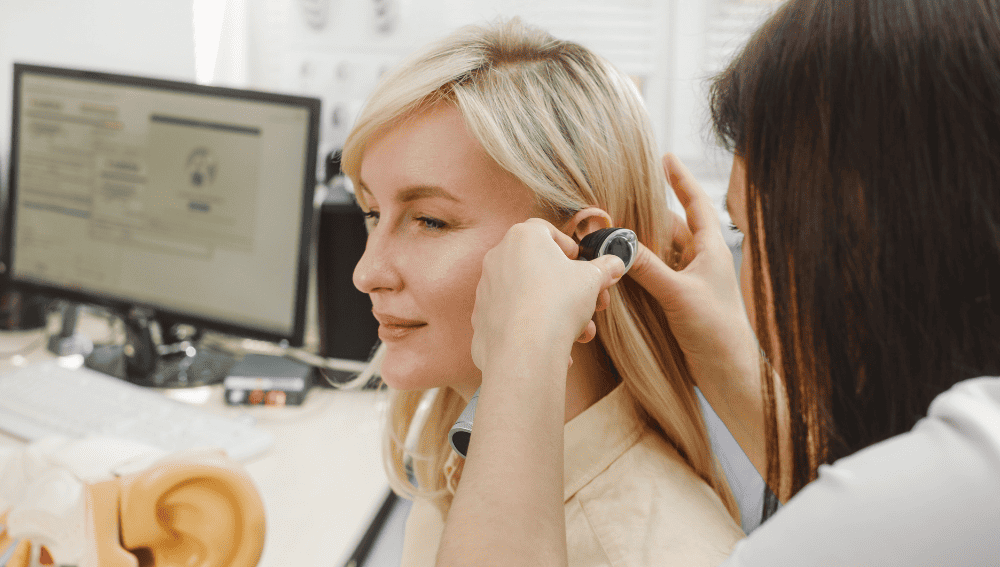Better hearing means better health, and this is not just a catchy phrase. There is a strong connection between hearing and overall well-being that has been well documented by scientific research.
Hearing loss can have a significant impact on one’s quality of life, leading to social isolation, depression, and cognitive decline. Conversely, taking care of one’s hearing can help maintain brain function, boost social engagement, and improve overall health.
Understanding Hearing and Its Importance Hearing is a complex process that involves the ears, brain, and nervous system. It allows us to communicate with others, enjoy music and nature, and stay alert to potential dangers.
However, hearing loss is a common problem that affects millions of people worldwide, particularly as they age. It can be caused by various factors, such as genetics, noise exposure, infections, and certain medications.
While hearing loss is not always preventable, there are ways to protect and improve hearing health.
Key Takeaways
- Hearing loss can have a significant impact on one’s quality of life, leading to social isolation, depression, and cognitive decline.
- Taking care of one’s hearing can help maintain brain function, boost social engagement, and improve overall health.
- Hearing is a complex process that involves the ears, brain, and nervous system, and can be affected by various factors such as genetics, noise exposure, infections, and certain medications.
Understanding Hearing and Its Importance
Hearing is the ability to perceive sound by detecting vibrations, changes in air pressure, and sound waves. It plays a vital role in communication, allowing us to connect with others, interact with the environment, and enjoy various sounds such as music, birds chirping, and laughter.
The importance of hearing cannot be overstated. It helps us navigate our surroundings, avoid danger, and stay alert.
It also enables us to communicate effectively, whether it’s in a personal or professional setting. Hearing loss can lead to social isolation, depression, and reduced quality of life.
Sounds are processed by the ear and sent to the brain for interpretation. The ear consists of three parts: the outer, middle, and inner ear.
The outer ear collects sound waves and directs them to the middle ear, where they are amplified and transmitted to the inner ear. The inner ear contains tiny hair cells that convert sound waves into electrical signals that are sent to the brain.
There are several factors that can affect hearing, including age, genetics, exposure to loud noise, ear infections, and certain medications. Regular hearing tests can help detect hearing loss early and prevent further damage.
In conclusion, understanding the importance of hearing and how it works is crucial for maintaining good health and quality of life. By taking care of our hearing and seeking treatment when necessary, we can improve our communication, connection, and overall well-being.
The Connection Between Hearing and Brain Function
Research has shown that there is a strong connection between hearing and brain function. The ears and the brain work together to process sound, and when hearing is compromised, it can have a negative impact on brain function.
One of the ways that hearing loss can affect brain function is through memory. Studies have found that individuals with hearing loss are more likely to experience memory problems than those with normal hearing.
This is because the brain has to work harder to process sound when hearing is impaired, which can lead to cognitive overload and make it more difficult to remember information.
In addition to memory, hearing loss has also been linked to cognitive decline. A study published in the Journal of the American Medical Association found that individuals with hearing loss experienced cognitive decline at a faster rate than those with normal hearing.
The study suggests that hearing loss may contribute to cognitive decline by reducing the brain’s ability to process sound and communicate effectively with other parts of the brain.
Furthermore, hearing loss can affect brain functioning in other ways as well. For example, individuals with hearing loss may have difficulty processing speech in noisy environments, which can lead to social isolation and a decrease in cognitive stimulation.
Additionally, hearing loss has been linked to an increased risk of depression and anxiety, which can further impact brain function.
Overall, the connection between hearing and brain function is clear. Maintaining good hearing health is important for maintaining overall brain health and cognitive function.
Impact of Hearing Loss on Health and Quality of Life
Hearing loss can have a significant impact on an individual’s health and overall quality of life. It can lead to feelings of isolation, loneliness, and depression, which can further affect physical and mental well-being.
Studies have shown that individuals with hearing loss are at a higher risk of developing depression and anxiety. This is because hearing loss can make it difficult for individuals to communicate effectively with others, leading to feelings of frustration and social isolation.
In addition to mental health concerns, hearing loss can also increase the risk of falls and accidents. This is because individuals with hearing loss may not be able to hear warning signals or environmental cues, such as a car horn or a fire alarm.
Furthermore, hearing loss can also impact an individual’s ability to perform daily activities, such as work or leisure activities. This can further affect an individual’s quality of life and overall well-being.
It is important for individuals with hearing loss to seek appropriate treatment, such as hearing aids or cochlear implants, to improve their hearing and overall health.
By addressing hearing loss, individuals can improve their communication skills, reduce feelings of isolation and depression, and improve their overall quality of life.
Hearing Loss and Aging
As people age, they may experience hearing loss due to a variety of factors such as genetics, exposure to loud noises, and medical conditions. In fact, it is estimated that approximately one in three adults over the age of 65 experience some form of hearing loss.
The impact of hearing loss on aging adults can be significant. It can lead to social isolation, depression, and decreased quality of life. Hearing loss can also impact cognitive function and increase the risk of dementia.
Research has shown a strong correlation between hearing loss and the risk of developing dementia. A study conducted by Johns Hopkins University found that individuals with hearing loss were more likely to develop dementia than those without hearing loss.
The study also found that the risk of developing dementia increased as the severity of hearing loss increased.
Despite the potential negative impact of hearing loss on aging adults, many individuals do not seek treatment for their hearing loss. This may be due to a lack of awareness about the potential consequences of untreated hearing loss or a reluctance to use hearing aids.
It is important for aging adults to prioritize their hearing health and seek treatment if they experience any signs of hearing loss. This can include difficulty hearing in noisy environments, asking others to repeat themselves frequently, or experiencing ringing in the ears.
By addressing hearing loss, aging adults can improve their overall health and quality of life.
The Role of Hearing Aids and Other Interventions
Hearing aids are the most common intervention for hearing loss. They come in various styles and types, including behind-the-ear (BTE), in-the-ear (ITE), and completely-in-the-canal (CIC). Hearing aids amplify sound and can improve speech understanding and communication.
They can also reduce the risk of cognitive decline and social isolation associated with untreated hearing loss.
However, hearing aids are not suitable for everyone. Some people may have difficulty adjusting to hearing aids or may not benefit from them due to the severity or type of their hearing loss. In such cases, other interventions may be recommended.
Treatment for hearing loss may include cochlear implants, bone-anchored hearing aids, or middle ear implants. Cochlear implants are electronic devices that bypass the damaged part of the inner ear and directly stimulate the auditory nerve.
Bone-anchored hearing aids use a surgically implanted device to transmit sound vibrations to the inner ear through the skull bone. Middle ear implants are surgically implanted devices that vibrate the middle ear bones to improve hearing.
Advancements in technology have also led to the development of assistive listening devices (ALDs). ALDs can be used in conjunction with hearing aids or as standalone devices. They include devices such as FM systems, loop systems, and personal amplifiers.
FM systems use radio waves to transmit sound directly to a receiver worn by the user. Loop systems use a magnetic field to transmit sound to hearing aids or cochlear implants equipped with a telecoil.
Personal amplifiers amplify sound for the user and can be used in various settings, such as in restaurants or classrooms.
In conclusion, hearing aids are a common intervention for hearing loss, but other interventions may be recommended depending on the severity and type of hearing loss.
Assistive listening devices can also be used to improve communication and quality of life for people with hearing loss.
Hearing Health in Children and Teens
Maintaining good hearing health is important for people of all ages, but it’s especially crucial for children and teens.
Proper hearing is essential for speech and language development, socialization, and learning. Here are some key points to consider when it comes to hearing health in children and teens:
- Hearing loss can occur at any age, but it’s especially common in children. According to the World Health Organization, approximately 32 million children worldwide have disabling hearing loss. This can be caused by a variety of factors, including genetics, infections, and exposure to loud noise.
- Early detection of hearing loss is crucial for children. The American Academy of Pediatrics recommends that all newborns be screened for hearing loss before leaving the hospital. Children should also have their hearing checked regularly as they grow and develop.
- Technology has made it easier than ever to detect and treat hearing loss in children. Hearing aids and cochlear implants can help children with hearing loss hear and communicate effectively. There are also a variety of assistive listening devices available, such as FM systems and soundfield systems, that can help children hear better in noisy environments like classrooms.
- Noise-induced hearing loss is a growing concern for teens. Many teens are exposed to loud music and other loud sounds on a regular basis, which can damage their hearing over time. Parents and educators can help teens protect their hearing by encouraging them to wear earplugs or noise-cancelling headphones in loud environments.
- Hearing loss can have a significant impact on a child’s quality of life. Children with hearing loss may struggle with speech and language development, socialization, and academic performance. By taking steps to protect and maintain their hearing health, parents and educators can help children and teens reach their full potential.
Social Engagement and Hearing
Social engagement is an essential aspect of human life that affects overall health and wellbeing. Hearing loss can have a significant impact on social interaction, leading to feelings of isolation and loneliness.
Studies have shown that individuals with untreated hearing loss are more likely to have limited social engagement, which can negatively impact their mental and physical health.
Hearing loss can make it difficult to communicate effectively, leading to misunderstandings and frustration. It can also make it challenging to participate in group conversations or social events, leading to feelings of exclusion.
This can affect relationships with friends and family members, leading to strained connections and reduced social support.
Fortunately, hearing aids and other assistive devices can help individuals with hearing loss improve their social engagement.
By improving communication abilities, individuals can participate more fully in social activities and maintain relationships with loved ones. This can lead to improved mental health and wellbeing, as well as reduced risk of cognitive decline.
In addition, maintaining social engagement can have a positive impact on physical health. Studies have shown that individuals with strong social connections have a reduced risk of chronic diseases such as heart disease and diabetes.
They also have a better immune system and are less likely to experience depression and anxiety.
Overall, social engagement is a critical aspect of health and wellbeing. Hearing loss can have a significant impact on social interaction, leading to feelings of isolation and loneliness.
However, by using hearing aids and other assistive devices, individuals can improve their communication abilities and maintain their social connections, leading to improved mental and physical health.
Prevention and Awareness in Hearing Health
Prevention and awareness are key factors in maintaining good hearing health. It is important to take steps to protect your hearing in order to avoid hearing loss and related health issues.
One of the most important steps in preventing hearing loss is to be aware of the risks of noise exposure. Exposure to loud noises, such as concerts or machinery, can cause damage to the delicate structures in the ear that are responsible for hearing.
It is important to wear earplugs or other protective gear when working with loud machinery or attending concerts or other loud events.
In addition to protecting your hearing from noise exposure, it is important to be aware of other factors that can contribute to hearing loss.
These can include certain medications, illnesses, and genetic factors. Regular hearing screenings can help to identify any potential issues before they become more serious.
Another important aspect of hearing health is awareness of the signs and symptoms of hearing loss.
These can include difficulty understanding speech, ringing in the ears, and a feeling of fullness or pressure in the ears. If you experience any of these symptoms, it is important to seek medical attention as soon as possible.
Overall, prevention and awareness are key components of maintaining good hearing health. By taking steps to protect your hearing and being aware of the signs and symptoms of hearing loss, you can help to ensure that you maintain good hearing for years to come.
Professional Hearing Health Care
When it comes to hearing health care, it’s important to seek out a qualified professional who can provide expert guidance and support.
Audiologists, hearing health care professionals, and other specialists are trained to diagnose and treat a wide range of hearing-related issues, from mild hearing loss to more severe conditions.
Audiologists are highly trained professionals who specialize in the diagnosis and treatment of hearing disorders. They are licensed and certified to perform a variety of tests and procedures to evaluate hearing loss and recommend appropriate treatment options.
Audiologists work closely with patients to develop personalized treatment plans that address their specific needs and goals.
Hearing health care professionals are another important resource for individuals with hearing loss. These professionals may include hearing aid specialists, speech-language pathologists, and other specialists who work with patients to improve their hearing and communication abilities.
They may also provide counseling and support to help patients cope with the emotional and psychological impact of hearing loss.
Whether you’re seeking treatment for a specific hearing-related issue or simply looking to improve your overall hearing health, it’s important to work with a qualified professional who can provide the guidance and support you need.
By seeking out professional hearing health care, you can take an important step towards better hearing and better overall health.
Insurance Coverage for Hearing Health
Insurance coverage for hearing health varies depending on the type of insurance and the specific plan. Some insurance plans cover hearing tests and hearing aids, while others do not.
Medicare, for example, covers some hearing services, but not hearing aids. Medicare Advantage plans, on the other hand, may offer more comprehensive coverage for hearing health, including hearing aids.
Veterans may be eligible for hearing healthcare through the Department of Veterans Affairs (VA). The VA provides hearing evaluations, hearing aids, and other assistive devices to eligible veterans.
It is important to review your insurance plan to understand what hearing services are covered. If you are unsure, contact your insurance provider for more information.
Overall, having insurance coverage for hearing health can help individuals access necessary services and improve their overall health and well-being.
World Hearing Day and Better Hearing Month
World Hearing Day is an annual event held on March 3rd, aimed at raising awareness about hearing loss and promoting ear and hearing care across the world. The theme for World Hearing Day 2023 is “Hearing Care for All”.
The day provides an opportunity to raise awareness about the impact of hearing loss on individuals, families, and communities and to promote actions to prevent and address hearing loss.
Better Hearing Month, also known as Better Hearing and Speech Month, is observed every May in the United States. The month-long celebration is dedicated to raising awareness about communication disorders and promoting the importance of early detection and intervention.
The event is organized by the American Speech-Language-Hearing Association (ASHA) and aims to raise awareness about the importance of hearing health and communication.
During Better Hearing Month, ASHA encourages people to take action to protect their hearing and to seek help if they are experiencing hearing loss.
The organization provides resources and information on hearing loss prevention, early detection, and treatment options. They also promote the use of hearing protection devices, such as earplugs and earmuffs, in noisy environments.
In conclusion, World Hearing Day and Better Hearing Month are important events that raise awareness about the importance of hearing health.
These events provide an opportunity to educate people about the impact of hearing loss and promote actions to prevent and address hearing loss.
Resources for Better Hearing Health
There are many resources available for individuals who want to improve their hearing health. Here are a few organizations and websites that offer valuable information and support:
- Hear-it.org: This website is a great resource for anyone who wants to learn more about hearing loss and how to prevent it. It offers a wide range of articles, videos, and other resources that cover everything from the causes of hearing loss to the latest treatments and technologies.
- National Institute on Deafness and Other Communication Disorders (NIDCD): This organization is part of the National Institutes of Health and is dedicated to promoting hearing health and preventing hearing loss. Its website offers a wealth of information on hearing loss, including tips for protecting your hearing, resources for parents of children with hearing loss, and information on hearing aids and other assistive devices.
- Johns Hopkins Medicine: The audiology department at Johns Hopkins offers a range of services for individuals with hearing loss, including hearing evaluations, hearing aids, and cochlear implants. Its website also provides information on hearing loss and the latest research on hearing loss treatments.
- Consumer Reports: This well-known consumer advocacy organization has published several articles on hearing aids and other hearing loss treatments. Its website offers reviews and ratings of hearing aids, as well as information on how to choose the right hearing aid for your needs.
By taking advantage of these resources, individuals can learn more about hearing loss and how to prevent it, as well as find the right treatments and technologies to improve their hearing health.
Frequently Asked Questions
How does hearing loss affect overall health?
Hearing loss can have a significant impact on overall health. It can lead to social isolation, depression, and anxiety. It can also make it difficult to communicate with others, which can affect relationships and job performance. Hearing loss can also increase the risk of falls and accidents.
What are the benefits of good hearing?
Good hearing is essential for communication, safety, and overall quality of life. It allows people to enjoy social activities, participate in conversations, and hear important sounds such as alarms and sirens. Good hearing also helps people to be more aware of their surroundings and stay safe.
What is the link between hearing and the brain?
The brain plays a crucial role in hearing. It is responsible for processing sound and interpreting it as meaningful information.
When hearing loss occurs, the brain may struggle to process sounds correctly, which can lead to difficulties in understanding speech and other sounds.
What are some common causes of hyperacusis?
Hyperacusis is a condition in which sounds that are normally tolerable become intolerable. Some common causes of hyperacusis include exposure to loud noise, head injury, ear infections, and certain medications.
What are the different degrees of hearing loss?
There are four degrees of hearing loss: mild, moderate, severe, and profound. Mild hearing loss means that sounds are difficult to hear, particularly in noisy environments. Moderate hearing loss means that speech must be louder to be heard.
Severe hearing loss means that speech must be shouted to be heard. Profound hearing loss means that even loud sounds are not heard.
How do hearing levels in dB impact hearing health?
Hearing levels are measured in decibels (dB). Sounds that are 85 dB or louder can cause hearing damage with prolonged exposure.
The higher the dB level, the less time it takes for hearing damage to occur. For example, sounds at 100 dB can cause damage after just 15 minutes of exposure. It is important to protect your hearing by wearing earplugs or earmuffs in loud environments.

Iesha is a loving mother of 2 beautiful children. She’s an active parent who enjoys indoor and outdoor adventures with her family. Her mission is to share practical and realistic parenting advice to help the parenting community becoming stronger.




